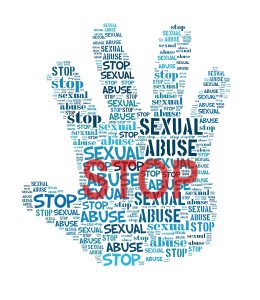Preventing Sexual Abuse in Youth Sports
News came across the wire this morning that a 51 year old fencing coach in San Diego has pleaded guilty to having sex with at least two underage girls over the past 10 years.
This marks another hit in the media to fencing, to youth sports coaching overall, and to many parent’s faith in this class of authority figures who are entrusted to build character and performance in their children.
The full story is available at Fox 5 San Diego via this link.
This is one of the stories that have been made public. How many other incidents are either swept under the rug or not reported by the victems?
Doing a small bit of research I found some great articles over at Moms Team and the stats are shocking:
One of every three girls and one of every six boys will be victims of sexual abuse by the time they are 18. One of the places that children are vulnerable is in youth sports.
Re-read that. Youth sports is *one of* the places where children are vulnerable. Not the only place, but even still, we as a community should be doing what we all can to reduce victimization statistic.
US Fencing has instituted what many other sports organizations started years ago – background checks. They are required by the YMCA and most school and municipal programs before starting up a class where minors will be taught. They aren’t fool-proof but are a good first step.
The article on Mom’s Team covers some other tips:
 1. Coach and Athlete should never be alone. Referred to as the Two Adult Rule, this protects the athlete and the coach. By having a witness to all interactions, the coach cannot take advantage of the athlete and the coach reduces their vulnerability to innuendo or allegations of wrongdoing.
1. Coach and Athlete should never be alone. Referred to as the Two Adult Rule, this protects the athlete and the coach. By having a witness to all interactions, the coach cannot take advantage of the athlete and the coach reduces their vulnerability to innuendo or allegations of wrongdoing.
(Those who manage other people may have been introduced to this rule as part of corporate sexual harassment training.)
2. Teach safe vs. unsafe touching. While an uncomfortable subject, parents need to broach this with their children and lay out what is an okay touch and bad touching. Touching and physical contact occur in sports in the interactions between players and player/coach. They are not all bad so your kids need to know the difference.
3. Educate yourself. Here is a fact sheet from the Administration for Children Families on recognizing child abuse and neglect: http://www.childwelfare.gov/pubs/factsheets/signs.cfm
4. Be involved. Watch practices and tournaments and get familiar with the local culture at your kid’s fencing club and at the tournaments where they go. If anything seems off, investigate and ask questions. There’s a line there between being a “helicopter parent” to watch, but this is about child welfare and if we’re still seeing incidents crop up, then there is more work to be done.
For more education, you can turn to the Sexual Assault Center in Tennessee, which provides an online guidebook as part of their online education program.
Momsteam also has several reference articles. Start here: http://www.momsteam.com/health-safety/ways-parents-can-help-prevent-sexual-harassment-and-abuse-in-youth-sports.






 KNAS
KNAS EOC
EOC IOC
IOC
Je moet ingelogd zijn om een reactie te plaatsen.